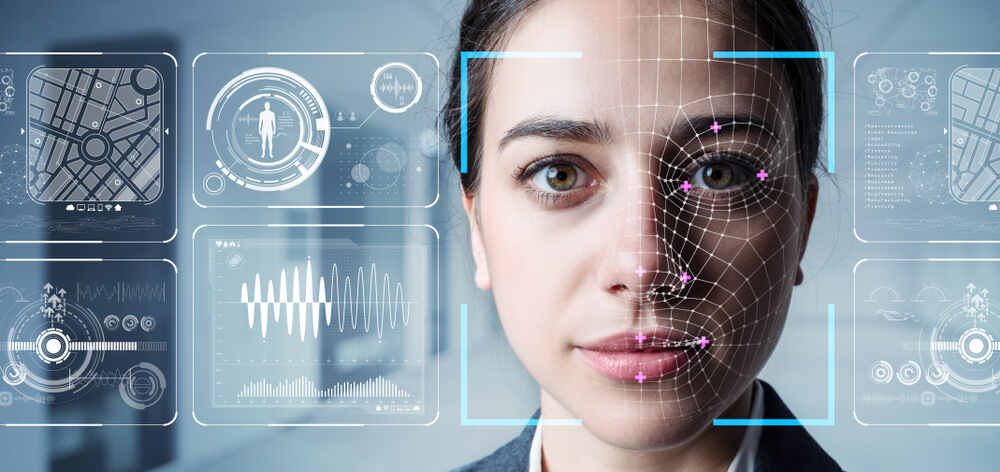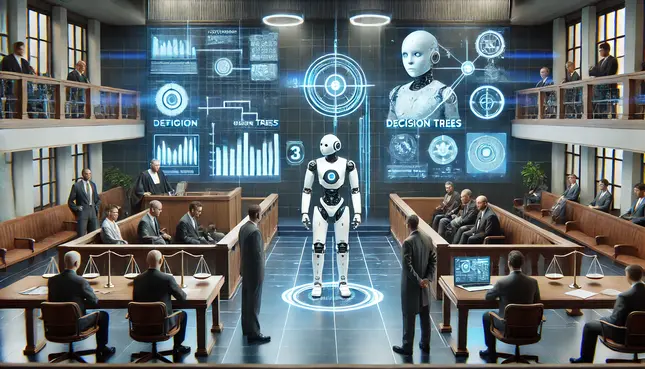The Ethical Landscape of Artificial Intelligence
In the age of Artificial Intelligence dominance, ethical concerns take center stage. Read on to delve into AI's biases, privacy breaches, and societal consequences, unveiling the need for accountability and balanced advancement.

Most of us have heard about ChatGPT, and it is evident that the advent of Artificial Intelligence (AI) has drastically reshaped various industries, and its impact on society continues to grow at an unprecedented rate. But as we reap the benefits, the ethical considerations surrounding AI have become increasingly vital. In this article, we will explore the ethical landscape of AI, diving into issues such as bias, privacy, accountability, and the implications for humanity.
Unraveling Bias in AI
Bias in AI represents a hidden challenge that can inadvertently propagate societal inequalities; addressing it is crucial for creating fair and just AI systems.
The Roots of Bias
AI systems learn from data, and that data often contain biases stemming from historical or cultural inequalities. By using this biased data, the AI may inadvertently perpetuate these biases.
Fighting Bias
Identifying and rectifying biases in AI is a complex task. Researchers and developers are employing various methods to tackle this, such as auditing algorithms and using more diverse training datasets. These measures strive to make AI more equitable, ensuring that decisions made by these systems are free from undue influence.
Protecting Privacy
Privacy is at the core of human dignity, and in an age where AI processes vast amounts of personal information, safeguarding it becomes paramount.
The Challenge of Privacy
With AI's growth in areas like healthcare and finance, the issue of privacy is paramount. AI algorithms can process immense amounts of personal information, creating a risk of misuse or unauthorized access.
Solutions to Privacy Concerns
Encryption, anonymization, and robust cybersecurity measures are employed to shield personal data. The goal is to enable AI to perform its functions without compromising individual privacy.
Accountability and Transparency
The question of who is responsible for AI's actions and how these processes are made clear is central to creating trustworthy and ethical AI systems, especially in sensitive industries such as trading and finance.
Who's Responsible?
When an AI system makes a decision, determining responsibility can be complex. Is it the developer, the operator, the company, or the algorithm itself?
Making AI Transparent
AI Transparency is key to establishing responsibility. Open AI standards, clear documentation, and public discourse can make the process and decisions of AI more understandable. This clarity aids in establishing accountability for AI systems, crucial for public trust.
Human-AI Collaboration
Collaborative efforts between humans and AI, such as in education, offer new avenues of innovation but also raise significant ethical considerations about the future of work and human dignity.
The Intersection of Man and Machine
AI is not replacing humans but rather augmenting human capabilities. Collaboration between humans and AI creates new opportunities for creativity and efficiency, but it also raises questions about job displacement and skills evolution.
Ensuring Ethical Collaboration
Creating ethical guidelines for Human-AI collaboration involves considering human dignity, job security, and personal development. This approach ensures that AI complements human abilities without undermining human values. For instance, AI-art generators should be used in conjunction with artists, not replace them.

AI Ethics in Articles, Blogging, and Literature
The application of AI in content creation, including articles, blogs, and literary works, opens exciting doors but also presents unique ethical challenges that must be conscientiously navigated.
AI's Role in Content Creation
AI technologies are increasingly used in articles, blogging, and literature for content creation, analysis, and even personalized recommendations. This trend amplifies the reach and impact of written content but also raises unique ethical dilemmas.
Authenticity and Originality
One major concern is the potential blurring of lines between human-generated and AI-generated content. Ensuring authenticity and originality in a world where machines can mimic human writing styles poses challenges. Proper attribution and clear demarcation between human and machine-authored content protect the integrity of the literary field. Luckily, software such as an AI detector has been developed to help identify AI-generated content more easily.
Bias and Representation
AI algorithms can inadvertently propagate biases found in training data, leading to content that may be skewed or stereotyped. Ensuring that AI-generated literature is free from unintentional bias requires scrutiny of the data sources and algorithms.
Accessibility and Copyright
The use of AI in content creation democratizes access to information, but it also prompts questions about copyright and intellectual property rights. Striking a balance that fosters innovation while respecting legal and moral rights is crucial.
Ethical Content Moderation
In the blogging and online article space, AI-driven content moderation helps maintain community standards. However, the fine line between moderation and censorship must be navigated with caution. Transparent guidelines and human oversight are essential to preserve free expression while maintaining respectful discourse.
Autonomy and Decision Making
As AI increasingly participates in decision-making processes that directly affect human lives, striking a balance between automation and human control becomes a complex ethical issue.
When AI Decides
AI algorithms are increasingly involved in making decisions that affect human lives, from medical diagnoses to financial loans. This raises questions about autonomy and the balance of power between machines and people.
Safeguarding Human Autonomy
The challenge lies in developing AI systems that assist without overpowering human decision-making. Building safeguards that allow human intervention and oversight ensures that AI enhances rather than supplants human autonomy.
Environmental Impact
The environmental footprint of AI's computational needs is a growing concern, linking technological advancement with the urgent need for sustainability.
AI's Footprint
The computational demands of AI have significant energy and resource requirements. This aspect of AI's development can lead to an increase in carbon emissions and other environmental impacts.
Green AI
Sustainable practices in AI development and deployment are necessary to mitigate these impacts. From energy-efficient algorithms to responsible hardware usage, the pursuit of "Green AI" reflects a commitment to align technological advancement with environmental stewardship.
Fair Access and Inclusivity
Ensuring that AI serves the needs of all individuals, regardless of their background or resources, is a significant step towards a more equitable future.

AI for All?
The benefits of AI should not be reserved for a privileged few. Yet disparities in access to technology can exacerbate existing social and economic inequalities.
Promoting Inclusivity
Ensuring fair access to AI involves creating affordable solutions, fostering education, and developing technology that serves diverse populations. Inclusivity in AI goes beyond mere access, encompassing design and deployment that consider the diverse needs and values of all individuals.
Security Concerns
Security in AI goes beyond safeguarding data and privacy; it also involves protecting against the malicious use of AI, which can have wide-ranging societal implications.
The Dark Side of AI
AI is not immune to misuse. From deepfakes to automated cyberattacks, the malicious use of AI technologies poses serious threats to individual and societal security.

Safeguarding Against Misuse
Effective security measures must be in place to prevent and respond to malicious uses of AI. Collaboration between governments, industries, and experts is crucial to develop robust safeguards that protect against the negative applications of AI while preserving its positive potential.
Conclusion
The application of AI in articles, blogging, and literature presents exciting opportunities for expansion and innovation. At the same time, it brings forth ethical challenges that touch upon authenticity, bias, accessibility, and content moderation. Addressing these issues requires a thoughtful combination of technological, legal, and societal approaches. Embracing these complexities with care and consideration, we can foster a literary landscape where AI augments human creativity without compromising the values and principles that underpin the world of letters.


